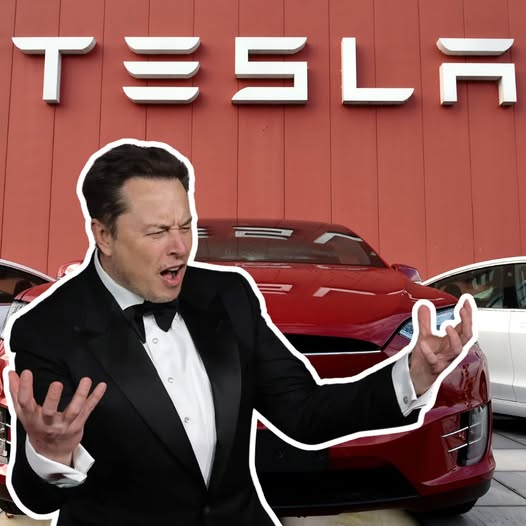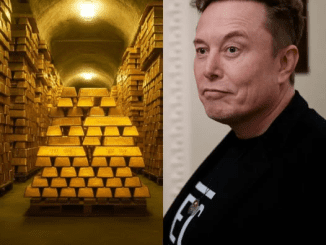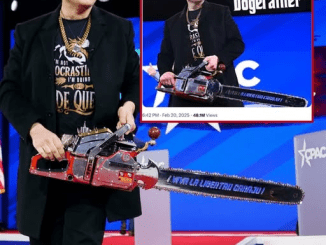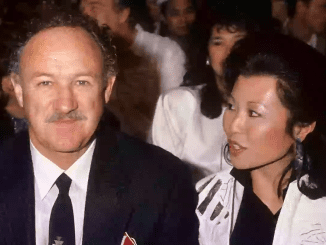
The Rise of a Disruptor
Elon Musk has never been one to shy away from competition. Since the early days of Tesla, he has challenged traditional automakers like General Motors, Ford, and Toyota, calling them out for their slow transition to electric vehicles (EVs) and their reliance on outdated manufacturing processes.
While many auto executives dismissed Tesla as an overhyped startup, Musk saw an opportunity to revolutionize transportation. His bold vision, combined with Tesla’s relentless innovation, has forced legacy automakers to rethink their strategies, accelerating the adoption of EVs worldwide.
But how did Musk’s rivalry with traditional automakers help Tesla thrive? Let’s take a closer look at the key battles, major milestones, and the lasting impact of Musk’s disruptive leadership.
Tesla vs. The Legacy Giants: A David vs. Goliath Story
1. Early Skepticism & Industry Pushback 🚘❌
When Tesla introduced its first vehicle, the Roadster (2008), the idea of an electric sports car was met with doubt and mockery from industry veterans. At the time, major automakers were reluctant to invest in EVs, arguing that battery technology was too expensive and inefficient.
Musk, however, remained unshaken. He pushed the limits of battery performance, charging infrastructure, and software integration, proving that EVs could be both practical and exciting.
Tesla’s Model S (2012) shattered expectations, offering:
✔ Longer range than any EV before it
✔ Ludicrous acceleration rivaling sports cars
✔ Over-the-air software updates
The success of the Model S proved that electric cars weren’t just a niche market—they were the future.
2. Musk’s Public Jabs at Traditional Automakers 🎤🔥
Musk has never held back when criticizing the slow pace of innovation in the auto industry. Some of his most famous remarks include:
🗣️ On General Motors (GM):
“They killed the EV1 and crushed the cars into scrap. We revived the electric car and are pushing the industry forward.”
🗣️ On Ford:
“Ford and others are just compliance EV makers. Tesla is the only company that truly believes in the electric revolution.”
🗣️ On Toyota:
“Toyota’s hybrid technology is outdated. We’re not going halfway. We’re going all in on electric.”
These bold statements fueled Musk’s reputation as a tech rebel, setting Tesla apart from traditional automakers that were seen as outdated and resistant to change.
3. The EV Race Heats Up: Traditional Automakers Forced to Respond ⚡🏁
As Tesla continued to dominate the EV market, traditional automakers could no longer ignore the shift. Several key moments signaled their reluctant but inevitable pivot to electric vehicles:
🔹 General Motors (GM): In 2021, GM announced it would become an all-electric company by 2035, a move directly influenced by Tesla’s success.
🔹 Ford: Launched the Mustang Mach-E (2020) and F-150 Lightning (2022) to compete with Tesla’s Model Y and Cybertruck.
🔹 Volkswagen: Invested billions into EV development, creating the ID. series to rival Tesla.
Even luxury brands like Porsche, BMW, and Mercedes-Benz entered the EV race, all acknowledging that Musk had fundamentally reshaped the industry’s future.
How Tesla’s Disruption Gave It a Competitive Edge 🚀
Elon Musk’s rivalry with traditional automakers has directly fueled Tesla’s success in multiple ways:
✔ First-Mover Advantage – While legacy automakers hesitated, Tesla dominated the EV market early and built a loyal customer base.
✔ Direct-to-Consumer Sales Model – Tesla bypassed traditional dealerships, making EV purchases seamless and innovative.
✔ Superior Battery Technology – Tesla led the way in range, efficiency, and cost reduction, forcing others to catch up.
✔ Autonomous Driving Leadership – Tesla’s Full Self-Driving (FSD) software remains ahead of most competitors.
By the time traditional automakers fully embraced EVs, Tesla had already secured its position as the global leader in electric mobility.
The Future of Tesla vs. Traditional Automakers 🔮
While Tesla continues to dominate, legacy automakers are fighting back. Some key trends shaping the future rivalry include:
🔹 Price Wars – Companies like GM and Ford are developing cheaper EVs to compete with Tesla’s aggressive pricing.
🔹 Battery Innovations – Automakers are investing in solid-state batteries and alternative materials to challenge Tesla’s battery dominance.
🔹 Government Regulations & Incentives – Many countries are phasing out gas-powered cars, accelerating the shift to EVs.
Despite increasing competition, Tesla remains ahead in innovation, software, and brand loyalty. With upcoming projects like the Cybertruck, Robotaxi, and AI-powered energy solutions, Musk is ensuring that Tesla stays at the forefront of technological disruption.
Final Thoughts: Musk’s Impact on the Auto Industry
Elon Musk’s relentless rivalry with traditional automakers has not only helped Tesla succeed—it has transformed the entire industry. What was once a resistant market is now fully embracing EVs, proving that Musk’s vision for a greener, electric future was right all along.
While legacy automakers scramble to catch up, Tesla continues to innovate, ensuring that Musk’s impact on the automotive world will be felt for generations to come.
🚘 What do you think? Will Tesla maintain its lead, or will traditional automakers finally close the gap? Let’s discuss! 🔥👇


